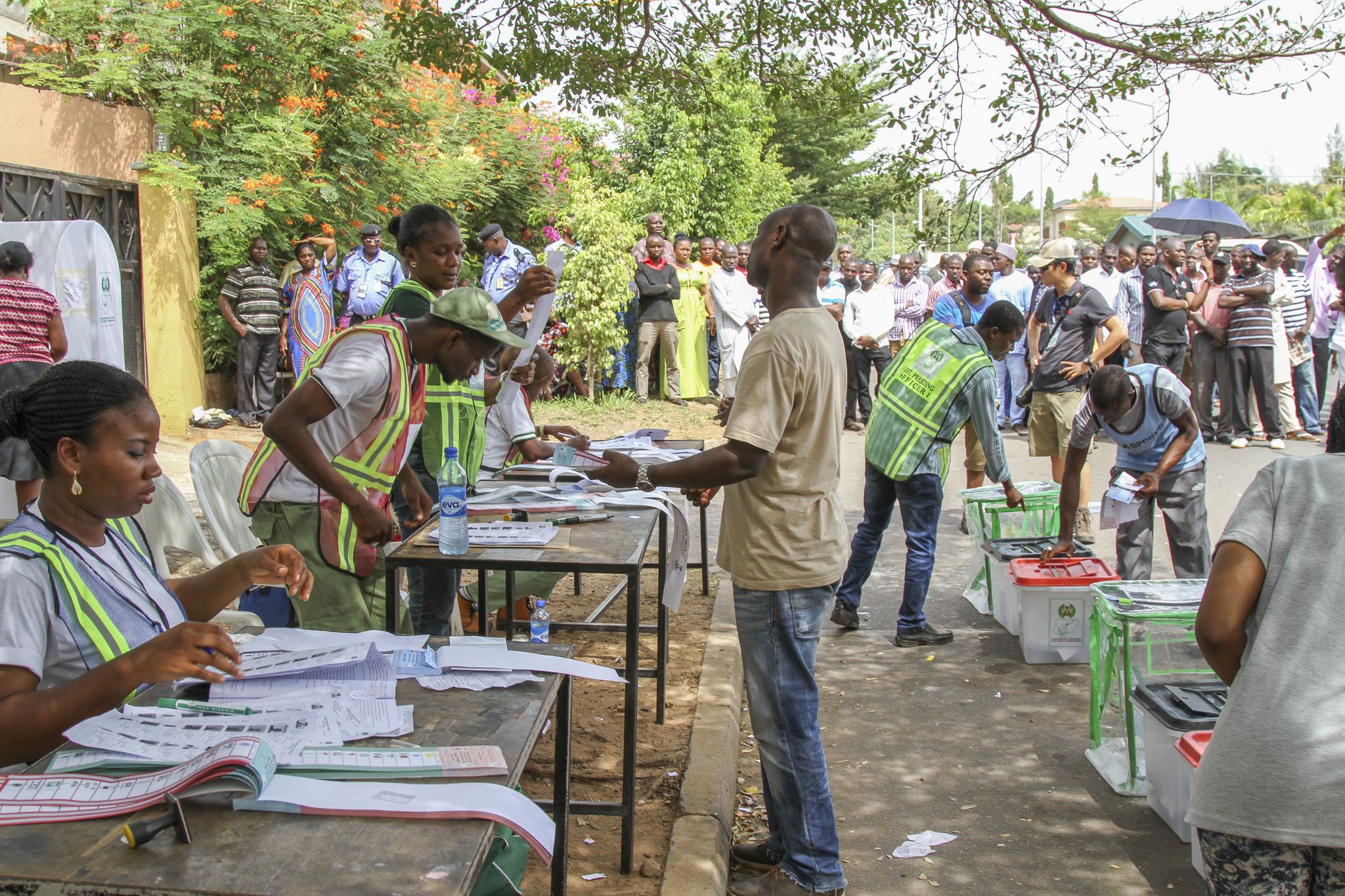By Femi Ogbonnikan and Vanessa Obioha, 20 August 2018

photo credit: IIP Photo Archive/flickr
On August 14, 2018, the Independent National Electoral Commission (INEC) announced the registration of 23 new political parties, bringing the total number of political parties in Nigeria to 91. Expectedly, the news elicited mixed reactions with political pundits revisiting the argument on the credibility and availability of these parties at both federal and state levels.
To be sure, INEC can only register parties that have adequately met the criteria stipulated in the amended version of the 1999 Constitution. Some of these criteria are that these parties must must provide the names and other contact details of their national and state executive committees, as well as, their administrative structure to INEC. Other requirements include a provision that the association seeking registration as a political party must have its national headquarters in the Federal Capital Territory, and at least, be operational in 24 states in the federation. Once these conditions are met, INEC proceeds to verify before the green light to function as a political party. [ . . . ] With the increasing number of associations joining the political race, it is expected that it will open a discourse on party monopoly, as the multi-party system promotes true democracy. Has registration of multiple parties resulted in a free and fair election or promoted the practice of democracy? Or has it led to more confusion and conundrums for the electoral body?
Read the full article here:
This Day
